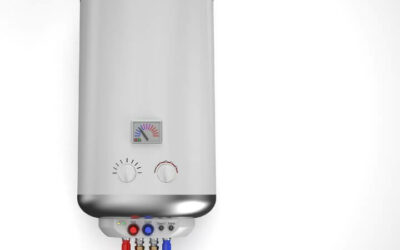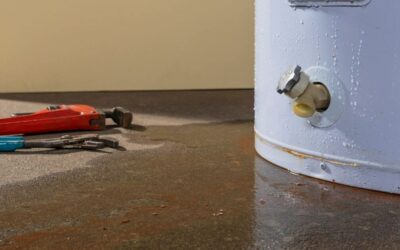Common Signs of Water Heater Failure
Being vigilant about your water heater’s performance can spare you the hassle of an icy shower and the potential for water damage in your home. Water heaters typically exhibit certain distress signals as they approach the end of their lifespan. By recognizing these indicators early on, you can promptly engage with water heater specialists for maintenance, repairs, or even a timely replacement. This proactive approach can mitigate the inconvenience and expense associated with a complete system breakdown. T&J Rooter Service specializes in water heater installation, repair, and replacement, ensuring that any issues with your unit are addressed efficiently and effectively. The forthcoming sections will delve into various symptoms that suggest your water heater might be on the decline. Promptly addressing these issues can be the crucial factor in avoiding a complex and costly overhaul.
Insufficient or Inconsistent Hot Water
A telltale sign that your water heater is underperforming is when you begin to experience a shortage of hot water or when the temperature of the water seems to change unpredictably. Several factors may be at play here, and a deeper understanding of these can help you gauge the severity of the problem.
Sediment Accumulation: Minerals from hard water tend to collect at the base of your tank over time, forming an insulating layer that hinders the heat from reaching the water. This can lead to a diminished supply of hot water as the heater’s efficiency drops.
Malfunctioning Thermostat: An erratic thermostat can be the culprit behind fluctuating water temperatures. Should the thermostat fail to measure and regulate the temperature accurately, you may find the water temperature swinging between extremes.
Compromised Heating Elements: In electric water heaters, the failure of one or more heating elements can drastically reduce the unit’s heating capability.
Gas Supply Disruptions: For those with gas water heaters, variations in water temperature could be due to an inconsistent gas supply or a malfunctioning burner. Without a stable gas flow, the heater cannot produce a constant level of heat.
Inadequate Tank Capacity: A factor that is sometimes overlooked is the tank’s capacity relative to your household’s demand. An increase in usage over time might mean that your current water heater is no longer sufficient.
To ensure a reliable and consistent hot water supply—and to sidestep the cascade of complications that can arise from neglecting such issues—it’s essential to take swift action.
Discolored or Cloudy Hot Water
When your tap releases water that’s murky or tinged with unfamiliar colors, it’s a clear signal that your water heater may be experiencing issues. Typically, you would expect your water to be pristine and transparent, so any alteration in appearance warrants prompt attention.
Rust and Corrosion: A reddish hue in your water often points to rusting within the tank or connecting pipes. This issue tends to arise in water heaters that have served for many years, as their protective linings wear away, leaving metal components vulnerable to oxidation.
Sediment Buildup: If your water appears cloudy, it’s possible that mineral deposits from hard water have settled in the tank. These deposits can get stirred up by the water flow, leading to a murky appearance and potentially impacting both the water quality and the efficiency of your heater.
Microbial Presence: Though less common, if the discolored water is also accompanied by an unpleasant odor, it may suggest bacterial contamination. This scenario typically occurs when water stagnates, creating an environment conducive to microbial growth, and should be addressed by a professional to ensure the water system is properly sanitized.
Anode Rod Wear: The anode rod in your water heater plays a crucial role in preventing corrosion by attracting corrosive elements in the water. Over time, this rod can wear down, which may contribute to changes in water color. Replacing the anode rod is often a straightforward fix for this problem.
It’s essential to investigate any changes in your water’s clarity or color, as these can have implications for both the longevity of your water heater and the safety of your water supply. A qualified technician can determine the root cause of the discoloration and recommend the appropriate steps for repair or replacement.
Strange Noises from the Water Heater
Encountering odd sounds emanating from your water heater can be unsettling and may indicate underlying issues. These auditory cues can vary from a gentle popping to a more pronounced rumbling, with each type of noise potentially pointing to a different concern.
Popping or Crackling: This noise is commonly heard when water percolates through sediment layers at the bottom of the tank. The popping or crackling occurs as water interacts with these deposits during heating.
Rumbling: Similar to the popping sound, a rumbling noise is often the result of sediment that has become dense and hard over time. As water moves around this sediment, the rumbling can become noticeable, hinting that it might be time to clean out the tank.
Whining or High-Pitched Sounds: For those with electric water heaters, a high-pitched whine may occur if limescale has accumulated on the heating elements. This scale can insulate the elements, forcing them to work harder and produce these sounds as they struggle to heat the water.
Knocking or Banging: Also known as ‘water hammer’, this phenomenon happens when the flow of water is abruptly halted, sending a shockwave through the pipes. Although this may not directly relate to the heater itself, it can contribute to wear and tear on both the heater and the plumbing system over time.
Ignoring these auditory signals can lead to more serious complications. They should be interpreted as cautionary signs that your water heater requires attention. Through regular maintenance, such as tank flushing and inspection for mineral deposits, you can help reduce these noises and prolong the functionality of your water heater.
Signs of Leaks or Water Pooling
A water heater that’s on the brink of failure may exhibit telltale signs of leakage or accumulation of water in its vicinity. Prompt attention to these symptoms can forestall water damage and mitigate repair expenses.
Moisture Indicators: Keep an eye out for any unusual wetness around your water heater. Puddles or even a slight dampness can signal a breach in the tank or issues with the connections.
Corrosion’s Red Flags: Rust on your water heater isn’t just unsightly—it could be a harbinger of leaks. Look for any unusual rust formation or discoloration, which might suggest the onset of tank degradation.
Tank Sweat: A tank that’s beaded with condensation might be struggling to maintain its internal environment, which could lead to more serious leakage issues down the line.
Pressure Relief Valve Activity: It’s normal for this valve to expel water occasionally, but if you notice it’s releasing water more frequently or in larger volumes, it could be a sign of excessive pressure or temperature, which requires immediate attention.
Unexplained Water: If there’s water without an obvious source near your heater, it could be seeping from less visible components, such as the tank’s underside.
Valve Integrity: Check the tightness of valves and the condition of washers, as these small parts can often be the culprits behind a leak.
Catching these issues early and seeking the expertise of a water heater professional can prevent a full-scale breakdown or extensive home damage. A specialist will pinpoint the leak’s origin and recommend either repair or replacement, depending on the severity of the situation.
Foul Odor in Hot Water
A pungent smell from your hot water is more than just a nuisance; it can be a symptom of underlying issues with your water heater.
Microbial Culprits: A sulfuric, rotten egg-like odor often arises from bacterial contamination within the tank. These bacteria thrive in hot environments and metabolize sulfur compounds, releasing hydrogen sulfide gas as a byproduct.
Anode Rod Interactions: Water heaters with magnesium anode rods can sometimes react with sulfate-rich water to produce a similar odor. Switching to an aluminum or zinc anode rod may resolve this issue.
Sediment Accumulation: Over time, sediment can collect at the bottom of the tank, trapping decomposing debris that emits unpleasant smells.
Stagnation: If the water heater has not been used for a while, stagnant water can become a breeding ground for odor-producing bacteria.
To address these odors, it’s essential to determine their source. Solutions may include flushing the tank to eliminate sediment, disinfecting the system, or changing the anode rod. For safety and effectiveness, it’s recommended to have a professional assess and treat the problem, ensuring your water quality is restored.
Unexpected Rise in Energy Bills
When your energy bills begin to climb without a clear explanation, it might be time to scrutinize your water heater’s performance. A less efficient unit has to exert more effort and operate for extended periods to heat your water, which can lead to a noticeable increase in your energy expenses.
One culprit behind diminished efficiency could be the accumulation of sediment, which acts as a barrier between the water and the heating element, requiring more energy to achieve the desired temperature. Additionally, if critical components like thermostats or heating elements are malfunctioning, the system may run incessantly or switch on and off more than necessary, further driving up energy use.
Another factor to consider is the insulation of your water heater. Models that are older or poorly insulated can lose heat swiftly, compelling the system to work overtime to maintain the set water temperature. Moreover, leaks, even minor ones that go unnoticed, can cause the unit to compensate for the water loss by heating additional water, thus inflating your energy bills.
Regular maintenance checks are essential to keep your water heater running efficiently and to prevent unexpected spikes in your bills. A water heater specialist can help you decide whether a simple repair or a full replacement with a more energy-efficient model is the most economical solution for your home.
Age and Condition of the Water Heater
The longevity and current state of your water heater are critical factors that can impact its functionality and risk of failure. Traditional tank-based water heaters typically have a service life ranging from 8 to 12 years, and as they age, they become more susceptible to issues and less efficient.
To determine the age of your unit, you can refer to the manufacturer’s label, which should display the installation date or a serial number that indicates its production date. When a water heater is nearing or has exceeded its expected lifespan, it may exhibit signs of wear, such as rust or corrosion, or show a decline in energy efficiency due to aging components.
The warranty period can also provide insights into the expected durability of the water heater. Once the warranty expires, the unit may still function, but the likelihood of needing more frequent repairs increases.
The maintenance history plays a pivotal role in the longevity of your water heater. Regular maintenance, such as periodic flushing and timely repairs, can extend the life of the unit beyond the average expectancy. Conversely, neglect can lead to premature failure.
A visual inspection can reveal much about the water heater’s condition. Signs to look for include rust or corrosion around valves and connections, or any bulging of the tank, which could be a symptom of internal pressure issues.
With advancements in water heater technology, newer models offer greater energy efficiency and enhanced safety features. Upgrading to a modern water heater can provide improved performance and potentially lower your utility costs, even if your current unit is still operational.
Keeping a vigilant eye on an aging water heater and considering proactive replacement can help you avoid the inconvenience of a sudden breakdown. A professional evaluation can offer valuable guidance on the state of your water heater and whether it’s time for repair or an upgrade.
Water Pressure and Temperature Relief Valve Concerns
The temperature and pressure relief (TPR) valve serves as a water heater’s guardian, averting potential disasters by releasing water should pressure or temperature soar to dangerous levels. A compromised TPR valve is a red flag, often heralding imminent water heater failure.
Regular Activation: It’s normal for the TPR valve to occasionally expel water to maintain safe pressure levels. However, if this happens with alarming regularity, it could indicate a deeper issue, such as persistent overpressure or a thermostat malfunction causing excessive heat.
Stagnant Valve: Should the test lever fail to release a few droplets of water upon being lifted, this could mean the valve is jammed—a perilous situation as it may not respond to critical pressure or heat spikes.
Persistent Drips: A TPR valve that leaks continuously may be faulty, necessitating cleaning or replacement. Remember, persistent leaks could also be symptomatic of broader systemic issues within your water heater.
Unusual Sounds: Any unexpected sounds emanating from the TPR valve, like hissing or popping, warrant immediate attention. These noises could be the telltale signs of overpressure within the tank or complications in the water discharge mechanisms.
Ignoring TPR valve issues is not an option; its role in safeguarding your home from the risks associated with water heater malfunctions is too vital. Professional inspection of the TPR valve and its associated components is a prudent step to ensure the safety and longevity of your water heating system.
Repeated Need for Repairs
A water heater that demands constant attention and repair is a telltale indicator of deeper systemic issues, potentially signaling its gradual decline towards failure. While periodic maintenance is part and parcel of owning a water heater, a pattern of persistent malfunctions is a clear distress signal.
Diverse Malfunctions: Scrutinize the nature and recurrence of the repairs. A pattern of diverse issues cropping up can suggest that the water heater is on its last legs.
Economic Considerations: The cumulative expense of repairs can quickly mount, tipping the scales in favor of investing in a new, more efficient water heater. It’s prudent to weigh the ongoing repair costs against the investment in a new unit.
Home Disruption: Beyond the financial implications, consider the inconvenience and potential risks associated with frequent water heater outages. The assurance of a steady hot water supply is not only about comfort but also about minimizing the risk of damage to your home.
Performance Degradation: Even with repairs, a water heater may not return to its prime efficiency, impacting not only your comfort but also your energy bills.
Guidelines from the Manufacturer: The manufacturer’s maintenance schedule can offer a benchmark for repair frequency. If your water heater’s needs far exceed these guidelines, it may be time to consider a replacement.
When repairs become a regular occurrence, it’s advisable to engage with a water heater specialist to explore new models that promise reliability, improved energy efficiency, and unwavering performance.






